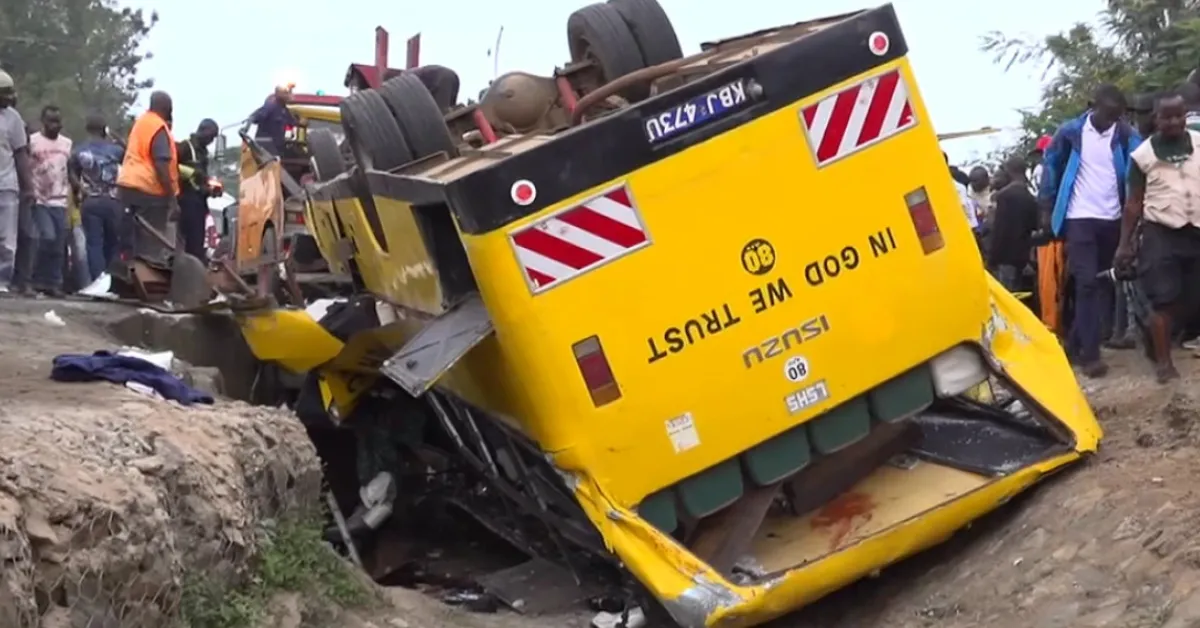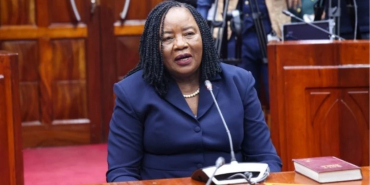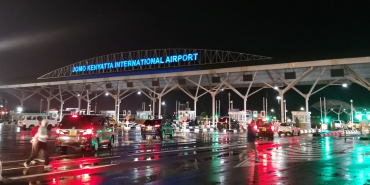Six Empty Seats That Meant the Difference Between Life and Death in Nyakach Crash

Tragedy has struck the Kobungu clan of Nyakach in Kisumu County after a horrific road accident claimed the lives of 26 people.
What began as a journey of collective mourning for the late Risper Akeyo Ogendo has transformed into an unfathomable tragedy, leaving a rural community reeling from unimaginable loss and grappling with questions of safety and communal travel practices. The devastating incident, which occurred on the Kisumu–Kakamega Road near the Coptic roundabout on Friday evening, has sparked widespread grief and calls for a thorough investigation into the circumstances surrounding the crash.
The clan had chartered a bus from Naki High School, a common practice in rural Kenya where collective transport is often preferred for both cultural and economic reasons, to convey mourners to the funeral service in Nyahera, some 60 kilometres away. However, fate intervened for a handful of individuals, their delayed arrival at the departure point inadvertently saving them from the impending disaster.
Rose Akeyo, whose husband had travelled from Nairobi, narrowly avoided boarding the ill-fated bus after it departed before she was ready. Rose,56,subsequently arranged alternative transport, a decision that would unknowingly shield her from the tragedy that awaited.
"We prayed together and shared tea," she recounts, highlighting the normalcy of the moment before tragedy struck. "He told me there were six vacant seats, so I need not worry."
The funeral service proceeded without incident, and the Naki High School bus embarked on its return journey, carrying 54 passengers eager to return home. However, their journey was tragically cut short when the bus careered off the road, resulting in a scene of carnage and despair. The impact claimed the lives of 26 passengers, many of whom perished at the scene, while scores of others sustained serious injuries.
The community is now left to confront the grim reality of a road accident that has robbed them of their loved ones. The emotional toll on the community is immeasurable, with families struggling to come to terms with the sudden and unexpected loss. Kezia Atieno, a 20-year-old university student, finds herself orphaned after losing both her parents, George and Jane Nyamita, in the crash. She had travelled separately due to lack of space on the bus and was overcome with dread when the bus failed to arrive as expected.
"By 7pm, I grew uneasy. The bus had left long before us, yet it had not arrived," she explains, her voice heavy with grief. "My parents' phones were off, and then someone called with the dreadful news."
The tragedy has ignited a debate over the safety of group travel practices in rural Kenya, where communal transport is deeply ingrained in the culture. While these arrangements foster a sense of unity and solidarity, they also concentrate risk, as evidenced by the devastating loss of 26 lives from a single clan. Mr Nyamita, who had opted to drive his own vehicle, now grapples with deep regret over the collective travel arrangement.
“Some people, like Maurice Amimo, even left their cars to enter the bus. Now… they are no more,” he laments, highlighting the cruel twist of fate that has befallen the community. "If we ever had a second chance, we would never again travel as one group in a single vehicle.”














Add new comment